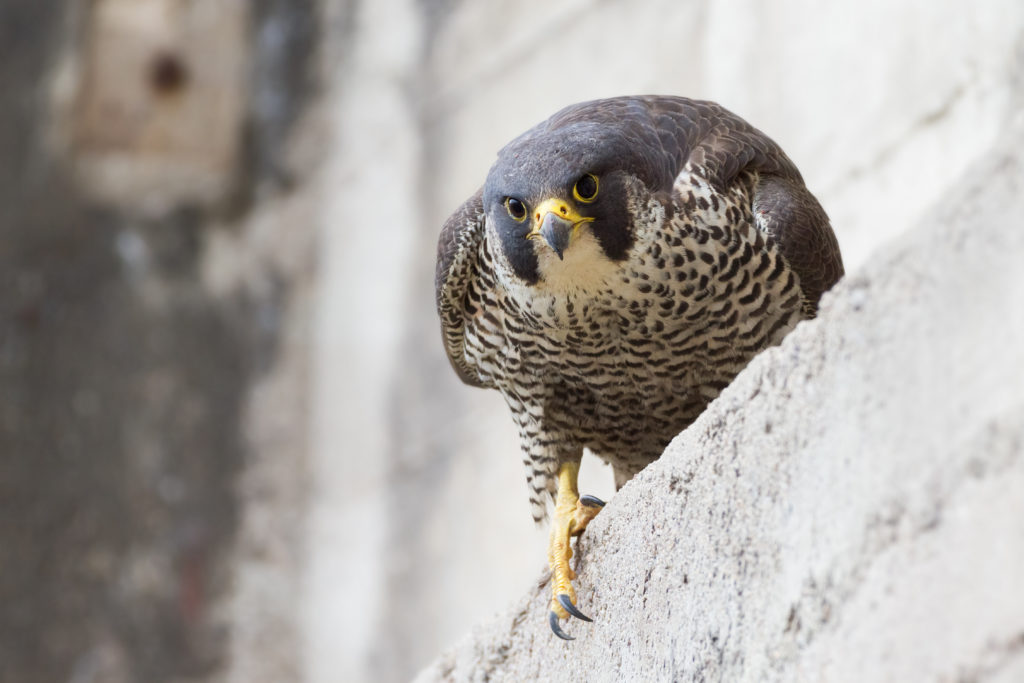5 Tips about Birds for Window and Building Cleaners

On June 16, window cleaners in Jersey City, NJ, were caught on camera spraying young peregrine falcons nesting on the roof of a 41-story building. As a result, two of the endangered falcons fell from the roof, one of which was later found injured on the street below while the other remained missing.
In addition facing public outrage over the incident, the window cleaners – whose company name has not been released by the media – are under investigation by the NJ Division of Fish and Wildlife and could potentially face hefty fines and/or jail time.
The falcons are a protected species under the Migratory Bird Treaty Act (MBTA) of 1918, a law that window cleaners and building maintenance professionals must abide by. Here are 5 key things to know:
- Over 1,000 species of birds are protected under the Migratory Bird Treaty Act (MBTA) of 1918, which makes it a federal crime to disturb active nests, kill, or take birds or their parts (including feathers) without special permission from the Secretary of the Interior.
- If you find an active protected bird’s nest while cleaning a building, you need to notify the building owners and let them know you will not legally be able to clean that particular area until the nest has been abandoned.
- Only three types of birds – sparrows, starlings, and pigeons – are not federally protected under the MBTA. In some cases, however, they may be protected by local laws, so it’s best to check with your local wildlife authorities. If these birds are not protected in your area, their active nests may be moved or destroyed.
- If a bird swoops at you, it is a parent defending its nest and/or babies. Birds will usually swoop at the highest point of a person – i.e., your head – so the simplest solution is to wear a protective hat while cleaning.
- If you find an abandoned nest, you can remove or destroy it. Generally it is safest to perform this nest removal work from September to January.

Once nests are removed, you can clean up the droppings using proper methods and cleaners. Applying bird abatement products – such as the safe, effective, and easy-to-install Optical Gel – is a profitable add-on service that will help keep your customers’ buildings safe from future bird infestations and the issues that come with them.
Dirty Bird
A simple pre-spray with our exclusive blend of over one trillion biological ingesters will break down, liquefy and actually consume bird droppings that can then be removed with only a simple rinsing. Dirty Bird will help create a safe environment for your business or family including pets and plants. Safe to use anywhere bird droppings and waste have become an eyesore or hazard to the people living or working there.

Optical Gel
Optical Gel The easiest bio-tech forcefield you'll ever install. It's natural and safe for us, and yes...even for the birds. But they HATE IT!


